Review of The Sociology of Russia’s Future Outlook: Preliminary Results
Polis. Politicheskiye issledovaniya. no. 5 (2022): 117–136
How Do Russians Envision Their Future?
A. A. Tokarev, I. D. Kravchuk, M. Yu. Boyko, and R. V. Ilyinsky

The state is an exploiter
This research is the first in a series of articles about the outlook for the Russian future that has been formed in the mass consciousness of Russians over the 10-year horizon starting in 2021–2022. Using a psychographic method within focus groups conducted across the country, the authors try to answer the question: “How do Russian citizens view their future?” The respondents are divided into three age cohorts: 18–30, 31–55, and 56+. In the first stage, the researchers present an analysis of 36 focus groups conducted in 18 cities, towns, and villages in 14 Russian regions (from Moscow to the Kamchatka Peninsula). Despite the emphasis on future perception, the text also describes current problems that Russians face, in comparison with data from leading sociological centers. Based on the analysis of drawings and transcripts of focus groups, the authors identify six large-scale discrepancies, or “splits,” within Russian society that, in the long term, can lead to widespread socio-political crisis. The tendencies of unconditional paternalism, low level of personal responsibility felt by citizens, deep inequality between Russian regions, and mutual feeling of alienation between those in power and the rest of society are described in detail.
The main mass trait of the respondents is a low sense of responsibility for their own future and a desire to rely on the government. This does not mean that people have the intention to rebel, avoid taxes, or commit crimes for self-enrichment. Negative motives encounter the same obstacle as low responsibility when it comes to envisioning their future. The majority of people are law-abiding and patriotic, willing to pay taxes, and do not have problems with law enforcement. Despite recognizing the problems of social and economic development, the average person is not inclined to move to another country or take personal initiative. They rely on the government as the only agent of change. However, despite the lack of social planning and low sense of responsibility, the average person is not stupid and is aware of the disparities within Russian society, which can lead to social explosion when the level of resentment and injustice surpasses the personal unwillingness to act.
The authors determine the major problems of society as follows:
The main mass trait of the respondents is a low sense of responsibility for their own future and a desire to rely on the government. This does not mean that people have the intention to rebel, avoid taxes, or commit crimes for self-enrichment. Negative motives encounter the same obstacle as low responsibility when it comes to envisioning their future. The majority of people are law-abiding and patriotic, willing to pay taxes, and do not have problems with law enforcement. Despite recognizing the problems of social and economic development, the average person is not inclined to move to another country or take personal initiative. They rely on the government as the only agent of change. However, despite the lack of social planning and low sense of responsibility, the average person is not stupid and is aware of the disparities within Russian society, which can lead to social explosion when the level of resentment and injustice surpasses the personal unwillingness to act.
The authors determine the major problems of society as follows:
- Weak correspondence between the formal status of bureaucracy at the federal, regional, and municipal levels and its actual legitimacy;
- Lagging dynamics of price changes compared to salary and pension increases (including the lack of indexation for working pensioners);
- Imbalance between the sense of historical, cultural, and international significance of the country, understanding of its national wealth, and the discrepancy between these factors and subjective feelings of one's own standard of living;
- Disparity in living standards between Moscow and the regions;
- Disconnection between the "picture" shown on TV and the internet and the real (observed) picture of life;
- Disparity between the level of consumption of the political, creative, and business elite and the "consumer basket" of ordinary people.

The dialogue and solidarity as a part of the future image
Comment by Associate Professor of Sociology of Law at the European University, Kirill Titaev:
There are two groups of problems that can cast doubt on the results of empirical social research. The first is an incorrect tool (unrepresentative or inadequate samples, poor questionnaires, etc.). In this case, the authors have done everything possible to make their study as correct and accurate as possible for a qualitative study. However, phrases such as "counterarguments of moderators" (p.127) in the text raise some questions.
The second stage is interpretation, which has two major problems. The first problem is the ambition of the task that the authors set themselves. When they write about "the average person being far from the image of a responsible citizen" (p.133), they are aiming for large-scale generalization. Phrases about "older age groups," "participants of older age more often," etc., also demonstrate attempts to identify links between socio-structural factors and opinions. Qualitative methods are not suited to this, even on large samples. Individual examples of coincidence with reality (such as the study by Dmitriev and Belanovsky, referred to by the authors) do not change the general rule. Qualitative methods, when it comes to beliefs rather than everyday practices, allow us to understand the internal logic of a particular narrative or discussion (thanks to focus groups).
There are two groups of problems that can cast doubt on the results of empirical social research. The first is an incorrect tool (unrepresentative or inadequate samples, poor questionnaires, etc.). In this case, the authors have done everything possible to make their study as correct and accurate as possible for a qualitative study. However, phrases such as "counterarguments of moderators" (p.127) in the text raise some questions.
The second stage is interpretation, which has two major problems. The first problem is the ambition of the task that the authors set themselves. When they write about "the average person being far from the image of a responsible citizen" (p.133), they are aiming for large-scale generalization. Phrases about "older age groups," "participants of older age more often," etc., also demonstrate attempts to identify links between socio-structural factors and opinions. Qualitative methods are not suited to this, even on large samples. Individual examples of coincidence with reality (such as the study by Dmitriev and Belanovsky, referred to by the authors) do not change the general rule. Qualitative methods, when it comes to beliefs rather than everyday practices, allow us to understand the internal logic of a particular narrative or discussion (thanks to focus groups).

Authorities` image
The second problem is mixing problems of different levels. This is a fundamental complexity. The authors try to combine very low-level personal stories (school didn't teach me how to pass the Unified State Exam well) with large subject areas. Such mapping is an interesting but extremely difficult task. What is this story about? About geographical, economic, educational inequality? The authors try to reduce this to very simple concepts, which requires a very strong interpretation of the informant's inner world. It's like when one focus group participant says that olive oil should smell like the Mediterranean Sea, and another says that it shouldn't burn when heated. Concepts of this level do not need to be combined.
All of this does not negate the meaningfulness and usefulness of the study itself, but it requires us to approach it not as some kind of future image, but as a study of "ways of looking at the future." Perhaps that's why the authors cite psychological literature quite actively at the beginning, but then move into purely narrative analysis, simply transmitting the words of the participants to us as "this is what they think."
All of this does not negate the meaningfulness and usefulness of the study itself, but it requires us to approach it not as some kind of future image, but as a study of "ways of looking at the future." Perhaps that's why the authors cite psychological literature quite actively at the beginning, but then move into purely narrative analysis, simply transmitting the words of the participants to us as "this is what they think."
